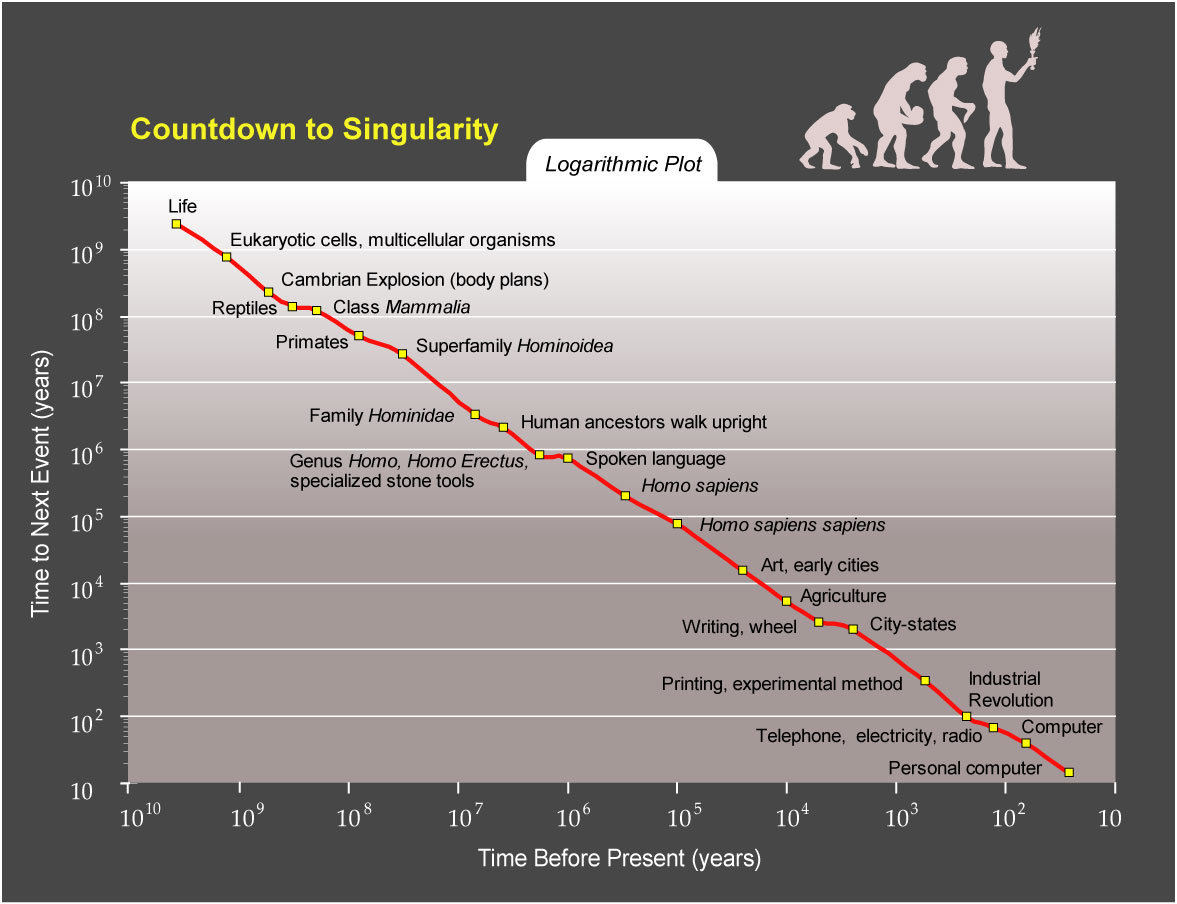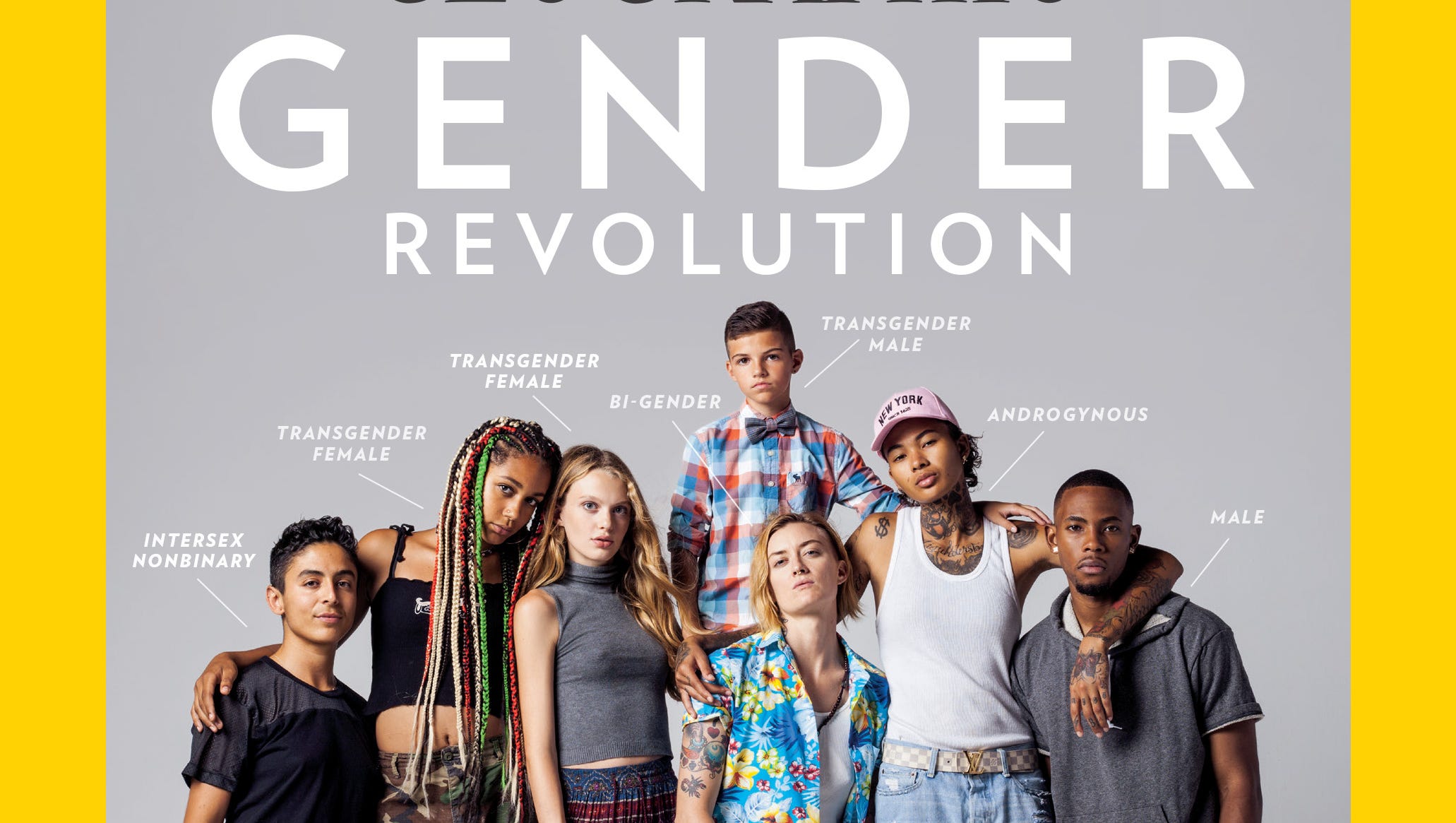LQB said:Laura said:And what if it has almost nothing to do with any of the usual explanations, but really has everything to do with poisons in the food we eat???
Absolutely - I think there is a big concurrent role here in the chemicals. Sometime last year, Jan Irvin did a podcast interview with a researcher devoted to understanding the effects and dosages of gender bending/hormone disrupting chemicals in so many products, wrappers, food, etc. He listed so many, I was floored. He also talked to many animal/human studies that showed heavy gender bending effects. One of his points was that folks just don't realize how much these gender issues among our youth would be non-existent without these poisons.
The podcast was last year sometime and is archived - unfortunately paid membership is required to access it.
Podcast #96 - Jan Irvin on The Trivium Method & Transhumanism - Bulletproof Radio
Published on Feb 13, 2014
Transhumanism
https://en.wikipedia.org/wiki/Transhumanism
Debate
https://en.wikipedia.org/wiki/Transhumanism#Debate
Loss of human identity
https://en.wikipedia.org/wiki/Transhumanism#Loss_of_human_identity
Snip:
Biopolitical activist Jeremy Rifkin and biologist Stuart Newman accept that biotechnology has the power to make profound changes in organismal identity. They argue against the genetic engineering of human beings because they fear the blurring of the boundary between human and artifact.[107][117] Philosopher Keekok Lee sees such developments as part of an accelerating trend in modernization in which technology has been used to transform the "natural" into the "artifactual".[118] In the extreme, this could lead to the manufacturing and enslavement of "monsters" such as human clones, human-animal chimeras, or bioroids, but even lesser dislocations of humans and non-humans from social and ecological systems are seen as problematic. The film Blade Runner (1982) and the novels The Boys From Brazil (1976) and The Island of Doctor Moreau (1896) depict elements of such scenarios, but Mary Shelley's 1818 novel Frankenstein is most often alluded to by critics who suggest that biotechnologies could create objectified and socially unmoored people as well as subhumans. Such critics propose that strict measures be implemented to prevent what they portray as dehumanizing possibilities from ever happening, usually in the form of an international ban on human genetic engineering.[119]
Science journalist Ronald Bailey claims that McKibben's historical examples are flawed and support different conclusions when studied more closely.[120] For example, few groups are more cautious than the Amish about embracing new technologies, but, though they shun television and use horses and buggies, some are welcoming the possibilities of gene therapy since inbreeding has afflicted them with a number of rare genetic diseases.[104] Bailey and other supporters of technological alteration of human biology also reject the claim that life would be experienced as meaningless if some human limitations are overcome with enhancement technologies as extremely subjective

Raymond Kurzweil believes that a countdown to when "human life will be irreversibly transformed" can be made through plotting major world events on a graph.
Queering the Human: Is the Transhuman already here?
http://www.philpercs.com/2015/07/queering-the-human-am-i-transhuman-already.html
Snip:By B.P. Morton
Or consider the strange life of Genesis P-Orridge, one of my personal hero/ines, about whom even basic ontology becomes linguistically fraught and contestable. I’m not even sure how to talk about Genesis without “deadnaming” h/er, so I hope I can be forgiven. Genesis began life as two separate humans, named Jacquelin Mary Breyer and Neil Andrew Megson. These two grew up. Neil legally changed h/er name to Genesis P-Orridge in 1971 (at age 21), and eventually became an important and influential avant-garde musician. I know h/er mostly as the front person for Throbbing Gristle, one of the very first Industrial bands. S/he also led Psychic TV. In 1993 Genesis began the “Pandrogeny Project” in which Jacquelin and Genesis attempted to merge into a single being named Genesis Breyer P-Orridge, to the extent that they were able. Largely s/he altered h/erselves to more closely resemble each other, in being as well as appearance, and attempted to merge h/er lives and experiences. S/he used hormones, extensive surgical body alterations, legal marriage, occultist rituals, and avant-garde art all in the attempt to effect as complete merger as possible. Genesis identifies as gender neutral and as a thorough but imperfect mix of h/er two original identities. In 2007 the body of Genesis that was assigned female at birth died. Genesis’ understanding of this situation is that s/he is now partly alive and partly dead, and has being both in the realm of the living and the dead. Is Genesis Breyer P-Orridge human? Is s/he one human or two humans (one of which is now dead)? If there is a case to be made for someone who already has a transhuman identity, I know of no better example than the life of Genesis Breyer P-Orridge.
If I were guessing, I would guess that transfolk and disabled folk will consistently lead the way into transhumanism. Why? Well, technologies aimed at seriously altering non-trivial aspects of human being, are going to have to go through experimental phases where they are expensive, of doubtful safety, and socially unfamiliar. That means there will be a lot of risks and costs. Which means the early adapters will need to be highly motivated to bear the risks. Taking feminizing hormones and going through a second puberty is expensive, not covered by my insurance, probably increases my risk of breast cancer and some heart and bone problems, and subjects me to some pretty steep social headwinds. And it’s not even particularly experimental anymore, Harry Benjamin started experimenting with HRT to treat trans patients in 1948. But in many ways it is still edgy. So why do I do it? Because it makes me feel vastly more comfortable, more myself, it helps me cope with my gender dysphoria. When South African doctors performed the first successful penis transplant after many failed attempts, earlier this year, trans-men around the world got excited, even though it’s likely to have a terrible success rate for years to come. When we first get viable chromosomal altering technologies (via nano or tailored viruses perhaps), I’ll be lots transfolk sign up for the early testing, even though the early protocols are sure to be atrocious in many ways. Similarly, I’m not particularly disabled myself, but I’ll bet that many smart, rational disabled people are willing to bear risks and costs that would make most able-bodied folks’ blood run cold, in hopes of mitigating some of the problems they live with. Do some disabled people identify strongly with their prostheses? I’ll bet. Do they think of themselves in cyborg terms more strongly than abled-bodied folks? Sometimes, I’ll bet. Certainly where I am most disabled is where I most think of myself in cyborg terms. Do they think of themselves as “cyborg enough” to be (barely) transhuman? Especially when they feel most alienated from the mainstream of humanity? I don’t know. Anyone know folks who think that way?

UnSpun 061 - Transgenda: Transgender and Modern Eugenics
Streamed live on Mar 21, 2017
Source:http://www.gnosticmedia.com/Jan and Joe discuss the promotion of transgender and the gay agenda, including unisex bathrooms as part of the modern eugenics program against Americans and the world.



